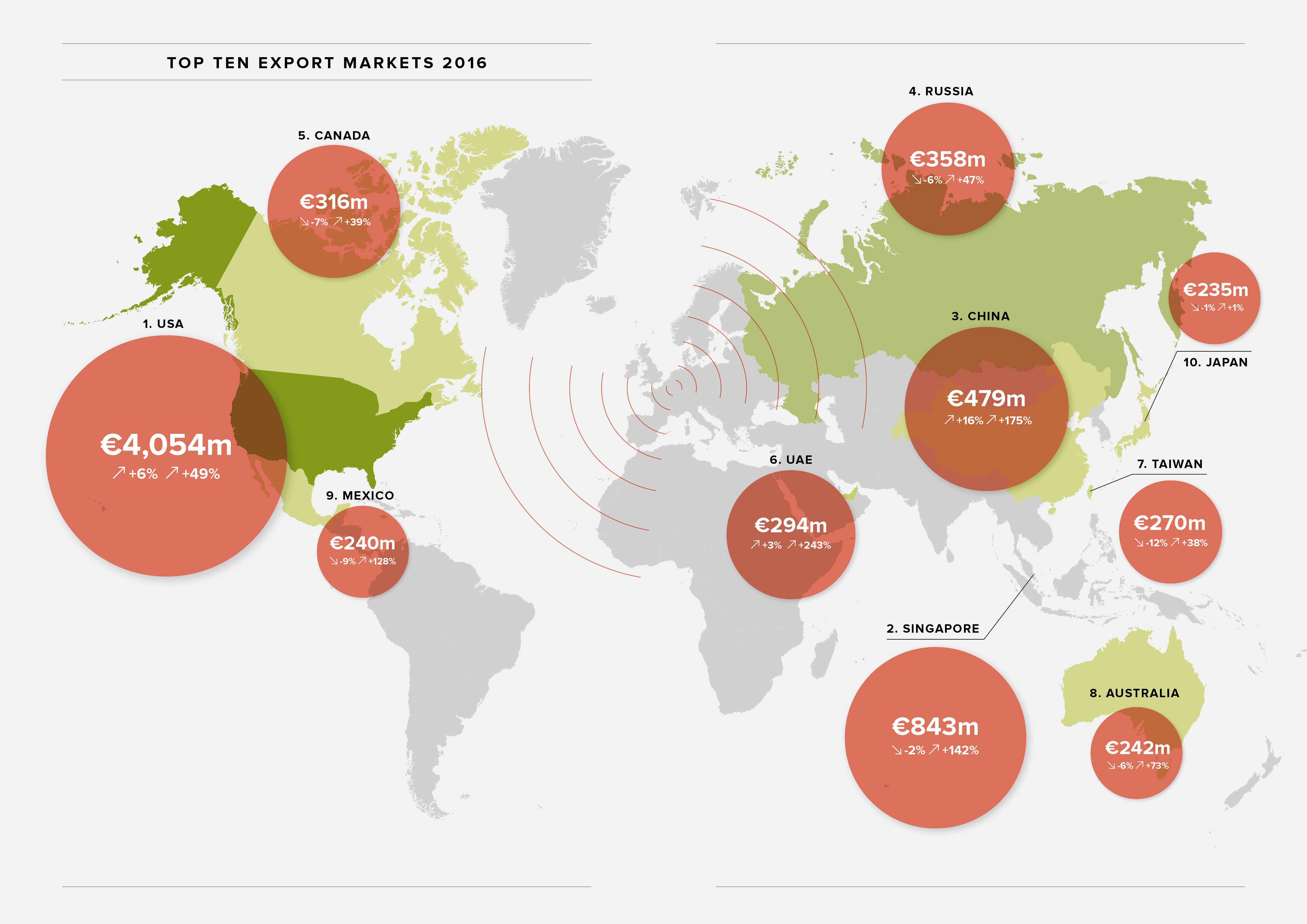 Negotiations rounds with MERCOSUR were resumed in 2016 after an exchange of market access offers took place in May 2016. A first round was held in Brussels in October 2016, followed by a second round in Buenos Aires in March 2017. A third negotiating round is taking place in Brussels on 3 to 7 July 2017. Despite the economic difficulties and the instability, there has been a growing demand for EU quality spirits over the past few years and this region offers huge opportunities for growth to the European spirits sector.
Negotiations rounds with MERCOSUR were resumed in 2016 after an exchange of market access offers took place in May 2016. A first round was held in Brussels in October 2016, followed by a second round in Buenos Aires in March 2017. A third negotiating round is taking place in Brussels on 3 to 7 July 2017. Despite the economic difficulties and the instability, there has been a growing demand for EU quality spirits over the past few years and this region offers huge opportunities for growth to the European spirits sector.
We look for a deal that will improve our access to MERCOSUR markets by reducing the import tariff (20% across the region). The recognition and protection of geographical indications is also an essential element of the deal. Like in other FTAs the EU has been working with Member States on an initial list of products, including leading spirits names. The list should be accompanied by strong provisions on enforcement.
We call on negotiators to look at issues such as the tax discrimination in Brazil not only at Federal level (IPI which favours Cachaça since its 2015 reform) but also existing discrimination at state level that need to be addressed. As found in many past WTO cases, all distilled spirits are at least directly competitive and substitutable and should be taxed similarly so as not to afford protection to domestic industry.
We welcome the EU proposal to include an Annex on trade in wine products and spirits (here) in the final agreement. We look forward to clarifying some elements with the negotiators to ensure that trade is improved.
Since 2012, direct EU spirits exports to MERCOSUR have decreased steadily from over €350 million to less than €200 million. The recent contraction of the Brazilian economy and the difficulties in Argentina explain this significant decrease. Brazil represents by far the largest market for spirits production and exports (48%) but is largely dominated by local spirits (mainly Cachaça) which is produced also by European companies having made significant investment in production plants.